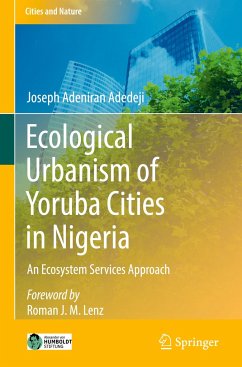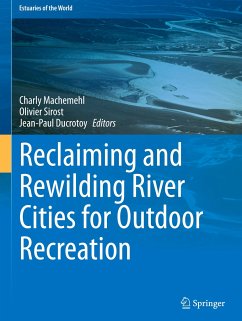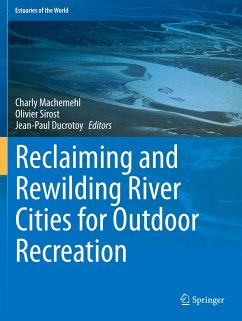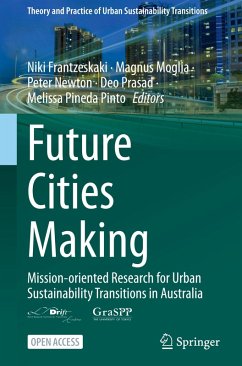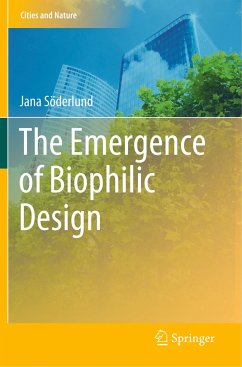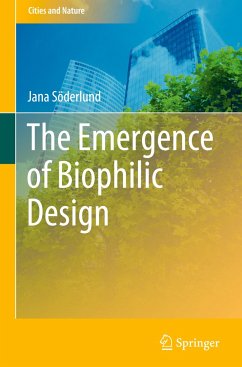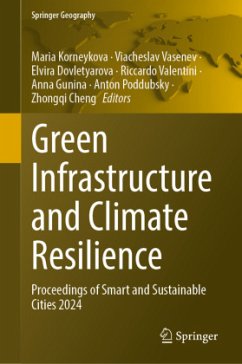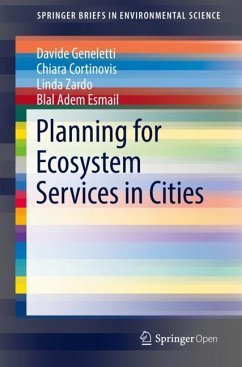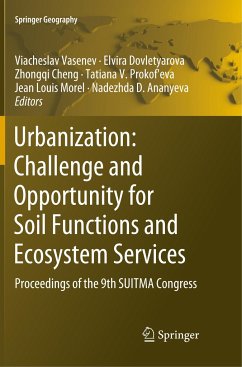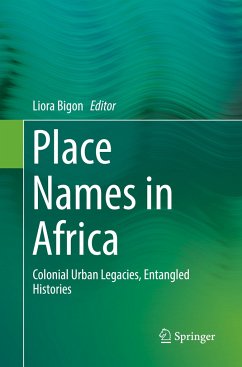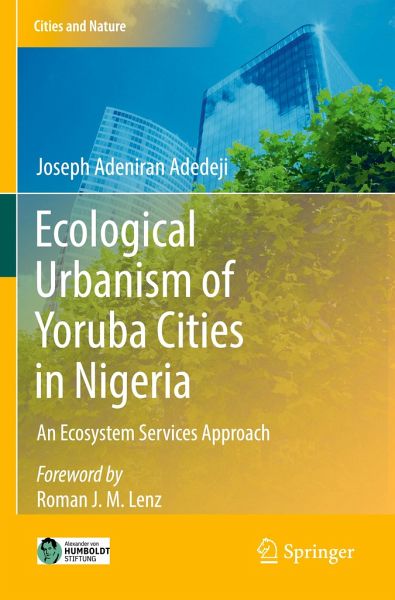
Ecological Urbanism of Yoruba Cities in Nigeria
An Ecosystem Services Approach
Mitarbeit: Lenz, Roman J. M.
Versandkostenfrei!
Versandfertig in 6-10 Tagen
106,99 €
inkl. MwSt.
Weitere Ausgaben:

PAYBACK Punkte
53 °P sammeln!
This book offers in-depth ethnographic analyses of key informants' interviews on the ecological urbanism and ecosystem services (ES) of selected green infrastructure (GI) in Yoruba cities of Ile-Ife, Ibadan, Osogbo, Lagos, Abeokuta, Akure, Ondo, among others in Southwest Nigeria. It examines the Indigenous Knowledge System (IKS) demonstrated for wellbeing through home gardens by this largest ethno-linguistic group in Nigeria. This is in addition to the ES of Osun Grove UNESCO World Heritage Site, Osogbo; Biological Garden and Park, Akure; Lekki Conservation Centre, Lagos; Adekunle Fajuyi Park,...
This book offers in-depth ethnographic analyses of key informants' interviews on the ecological urbanism and ecosystem services (ES) of selected green infrastructure (GI) in Yoruba cities of Ile-Ife, Ibadan, Osogbo, Lagos, Abeokuta, Akure, Ondo, among others in Southwest Nigeria. It examines the Indigenous Knowledge System (IKS) demonstrated for wellbeing through home gardens by this largest ethno-linguistic group in Nigeria. This is in addition to the ES of Osun Grove UNESCO World Heritage Site, Osogbo; Biological Garden and Park, Akure; Lekki Conservation Centre, Lagos; Adekunle Fajuyi Park, Ado-Ekiti; Muri Okunola Park, Lagos; and some institutional GI including University of Ibadan Botanical Gardens, Ibadan; Federal University of Agriculture Abeokuta Botanical Garden, Abeokuta; and University of Lagos Lagoon Front Resort, Lagos, Nigeria. The study draws on theoretical praxis of Western biophilic ideologies, spirit ontologies of the Global South, and largely, Millennium Ecosystem Assessment (2005) to examine eco-cultural green spaces, home gardens, and English-types of parks and gardens as archetypes of GI in Yoruba traditional urbanism, colonial and post-colonial city planning. The book provides methods of achieving a form of modernized traditionalism as means of translating the IKS into design strategies for eco-cultural cities. The strategies are framework, model, and ethnographic design algorithms that are syntheses of the lived experiences of the key informants.



